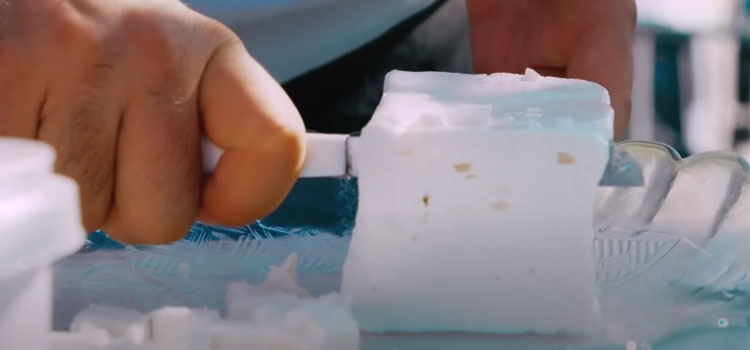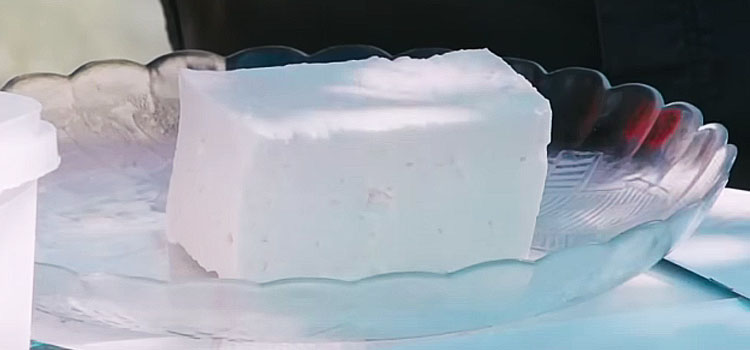Last Updated on September 16, 2024 by Shari Mason
Ever get a whiff of **feta cheese** and feel: “Wow, that’s strong”? Sure, the **bold scent** and distinct taste of **feta cheese** can be a bit much for some folks.
This love-it-or-leave-it reaction often concerns personal preference, but there’s more to the story than subjective taste.
I asked my closest friends who are not fans of feta cheese to ask them – why does feta cheese taste so bad to some?
Why Does Feta Cheese Taste Bad?
Feta cheese has a distinct tangy, briny flavor and crumbly texture, derived from its sheep’s milk origin and fermentation process.
Its strong taste is due to the presence of fatty acids and bacteria introduced during production. These characteristics can be polarizing.
“Age is something that doesn’t matter, unless you are a cheese.”
– Luis Bunuel, Spanish-Mexican Filmmaker
While many appreciate its unique flavor profile, others might find it overpowering or unappealing, especially if they are not accustomed to fermented foods.
Personal taste preferences play a significant role in one’s perception of feta.
Also Read:
- How Long Is Feta Cheese Good For After Opening?
- Best Store-Bought Greek Dressing
- Best Cheese For Chicken Sandwich
Why Is The Smell Of Feta Cheese So Strong?


The potent aroma of feta cheese [1] arises from the intricate interplay of its fermentation process and the distinctive bacteria harnessed during production.
A symphony of compounds emerges through the curdling and fermenting milk alchemy, infusing the cheese with its unmistakable olfactory signature.
Just as diverse flowers emit unique scents, different cheeses carry their own aromatic stories, making feta’s robust scent a testament to the art of cheese-making.
What Makes Feta Cheese Taste Tangy?
The characteristic tanginess of feta cheese owes its presence to the transformative magic of fermentation. As milk curdles and cultures of beneficial bacteria flourish, these microscopic artisans produce acids that give feta its zesty and sharp flavor profile.
This delightful tang, akin to the twinkle in a citrus fruit, adds depth and vibrancy to dishes, making feta a distinctive culinary treasure.
Why Does Feta Cheese Taste So Salty?
Feta cheese’s briny disposition can be traced back to its immersion in a saltwater bath, a process known as brining. This technique preserves the cheese and permeates it with a savory saltiness that elevates its taste.
Each bite of feta carries the memory of its salty bath, infusing salads, pastries [2], and dishes with a unique and robust flavor profile that can either delight or challenge the palate.
Why Is Feta Cheese Sometimes Considered An Acquired Taste?


The “acquired taste” label often befits feta cheese due to its departure from familiar flavor profiles. Shaped by our culinary backgrounds, our taste preferences find solace in the familiar.
Feta’s robust and tangy nature, symbolic of Mediterranean cuisines, can initially bewilder palates unaccustomed to such boldness.
“Taste, like art, is subjective – feta cheese’s bold flavor, an ensemble of tang and salt, dances on the palate, enchanting some and challenging others, reminding us that culinary journeys are as diverse as the flavors themselves.”
– Eat Pallet Restaurant & Food Advice.
Yet, as explorations of new tastes unfold, feta’s complexities become an intriguing journey that transforms the unfamiliar into an appreciated and even cherished part of our gastronomic landscape.
Can The Type Of Milk Used Affect The Taste Of Feta Cheese?
Yes. The type of milk used in feta cheese production significantly impacts its flavor. Traditional feta is crafted from sheep’s milk, which imparts a rich and tangy taste, often described as robust and earthy.
Goat’s milk, another common choice, lends a milder tanginess with a touch of sweetness. Cow’s milk versions, while less traditional, offer a creamier and subtler flavor.
These milk variations influence the cheese’s final character, highlighting the feta family’s diversity and allowing each type to cater to different tastes and culinary applications.
FAQs
u003cstrongu003eIs feta supposed to taste bitter?u003c/strongu003e
Feta cheese is not inherently supposed to taste bitter. The primary flavors associated with feta cheese are tangy and salty, with some variations of sweetness depending on the type of milk used and the aging process. u003cbru003eu003cbru003eIf feta cheese tastes bitter, it could indicate improper storage or spoilage. Fresh and well-made feta should exhibit a balance of flavors emphasizing its tanginess and saltiness rather than bitterness.
u003cstrongu003eHow do you reduce the taste of feta cheese?u003c/strongu003e
To mellow the robust taste of feta cheese, consider pairing it with ingredients that complement its flavors. u003cbru003eu003cbru003eSweet elements like honey, fruits, or caramelized onions can balance its tanginess. Blending feta into creamy sauces or dips can also help temper its intensity.
In Conclusion
The perception of feta cheese tasting “bad” is subjective and rooted in individual preferences and experiences.
While some may find its potent aroma, tangy taste, and salty kick overwhelming, others embrace these qualities as the essence of its unique charm.
Understanding the science behind feta’s bold flavors, influenced by fermentation, brining, and milk type, allows us to appreciate the intricate artistry of crafting this cheese.
Ultimately, feta’s bold character is a testament to the diversity of culinary experiences, where each palate holds its own story, making the food world both fascinating and endlessly diverse.
References:
- https://www.thespruceeats.com/what-is-feta-cheese-1807015
- https://www.tasteofhome.com/collection/easy-pastry-recipes-you-can-make-at-home/
- Can You Put an AC Unit in the Kitchen? - September 27, 2024
- What Cheese Does Olive Garden Use? Discover Their Signature - September 27, 2024
- How to Cancel a Pizza Hut Order? Quick & Easy Guide - September 24, 2024


